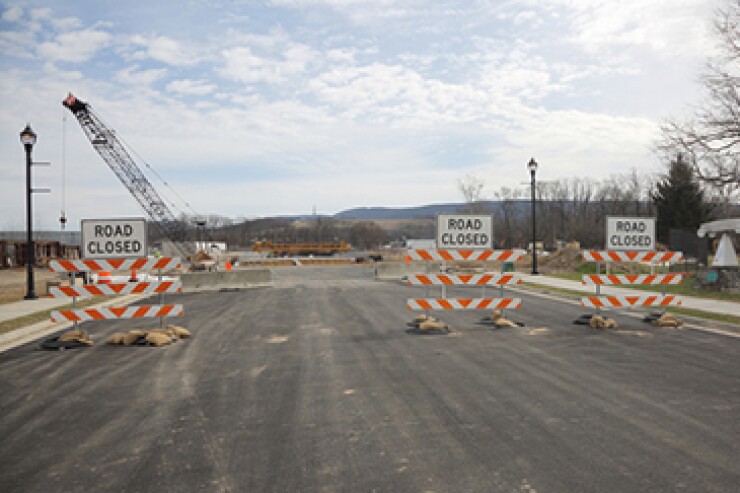
DALLAS – The nation's deteriorating infrastructure will continue to decline without a resolution of a $2 trillion funding shortfall over the next 10 years, the American Society of Civil Engineers said in its latest look of the status of 16 infrastructure sectors.
ASCE gave U.S. infrastructure a nearly failing grade of D-plus in the
The largest gap between needs and funding is in the highway sector's $1.1 trillion shortfall, with $2.04 trillion of work needed but only $941 billion of available funding.
The ASCE's recommended solution is to more than double the federal tax of 18.4 cents per gallon of gasoline and 24.4 cents per gallon of diesel, then index them to inflation.
"To ensure long-term, sustainable funding for the federal surface transportation program, the current user fee …must be raised by at least 25 cents per gallon and tied to inflation to restore its purchasing power, fill the funding deficit, and ensure reliable funding for the future," the report card said.
The worst grade in the ASCE report went to public transit, which slipped from a D in the 2013 report to a D-minus in the current assessment. Restoring the highway trust, which provides the federal funding for transit, would help eliminate an estimated transit maintenance backlog of $90 billion that is expected to grow to $122 billion by 2032, ASCE said.
The study was released a day after President Donald Trump told business leaders at a White House meeting that he wants the projects that would be funded by his $1 trillion, 10-year infrastructure proposal to get underway within 90 days of Congress passing a new funding measure.
"We're not going to give the money to states unless they can prove that they can be ready, willing, and able to start the project," Trump said during the private meeting, according to a report in the Wall Street Journal. "We don't want to give them money if they're all tied up for seven years with state bureaucracy."
Trump told lawmakers at a joint session of Congress last week that he wanted them to get to work on infrastructure funding after dealing with healthcare and tax reform.
ASCE is encouraged by the president's attention to infrastructure, said Norma Jean Mattei, the group's president and an engineering professor at Louisiana State University.
"While we haven't seen any action in Congress, we need to hold their feet to the fire," she said.
"We need our elected leaders — those who pledged to rebuild our infrastructure while on the campaign trail — to follow through on those promises with investment and innovative solutions that will ensure our infrastructure is built for the future," Mattei said.
"There is no magic wand," she said of the need for additional funding. "There is no infrastructure money tree or private sector angel."
ASCE's nearly failing grade for transportation infrastructure is the result of decades of under-investment in roads, bridges, and transit, said Bud Wright, executive director of the American Association of State Highway and Transportation Officials.
The five-year federal funding law passed in late 2015 provided some modest increases in federal highway and transit funding through fiscal 2020, "but it did not solve the long-term funding issues that threaten the future of America's highway, transit and passenger rail programs," Wright said.
"The call for greater infrastructure investment began on the campaign trail and it continues in Washington today," he said.





